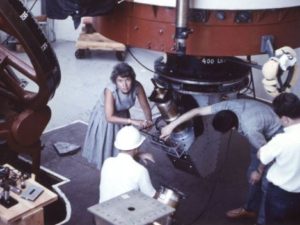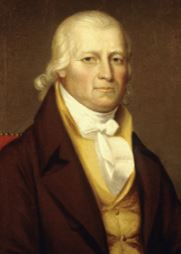“Father of the Spreadsheet”
 Daniel Singer Bricklin (b. 1951) was born in Philadelphia and studied at its Akiba Hebrew Academy. He graduated from MIT in 1973 with a degree in electrical engineering and computer science. His first job was working at a tech company called DEC, replacing typewriters with computers for newspaper companies. He then became DEC’s project leader on its development of the first word-processing software. After a few years, Bricklin moved on to work at FasFax, designing some of the first electronic cash registers for fast food companies. In 1979, he got an MBA from the Harvard Business School. During his studies there, fed up with repetitive and tedious calculations, Bricklin came up with an idea for an electronic spreadsheet. Teaming up with his friend, the two put together a new program called VisiCalc for the Apple II computer. This was the first spreadsheet software ever made, and the foundation for future spreadsheet programs like Excel. In fact, it was VisiCalc that transformed the computer from a mysterious device reserved for techies to a practical tool used by mainstream businesses and consumers. VisiCalc skyrocketed sales of the Apple II, leading Steve Jobs to admit that it “propelled the success of Apple… more than any other single event… If VisiCalc had been written for some other computer, you’d be interviewing somebody else right now.” A New York Times article at the time wrote humorously, but accurately: “All Hail VisiCalc.” For this, Bricklin was awarded the prestigious Grace Murray Hopper Award, among many others. Since then, Bricklin has started a number of other successful tech and software companies, and is currently the president of Software Garden, and the CTO of Alpha Software. He has also published a book, and has been featured in two documentaries. Watch Bricklin’s short and fascinating TED talk here.
Daniel Singer Bricklin (b. 1951) was born in Philadelphia and studied at its Akiba Hebrew Academy. He graduated from MIT in 1973 with a degree in electrical engineering and computer science. His first job was working at a tech company called DEC, replacing typewriters with computers for newspaper companies. He then became DEC’s project leader on its development of the first word-processing software. After a few years, Bricklin moved on to work at FasFax, designing some of the first electronic cash registers for fast food companies. In 1979, he got an MBA from the Harvard Business School. During his studies there, fed up with repetitive and tedious calculations, Bricklin came up with an idea for an electronic spreadsheet. Teaming up with his friend, the two put together a new program called VisiCalc for the Apple II computer. This was the first spreadsheet software ever made, and the foundation for future spreadsheet programs like Excel. In fact, it was VisiCalc that transformed the computer from a mysterious device reserved for techies to a practical tool used by mainstream businesses and consumers. VisiCalc skyrocketed sales of the Apple II, leading Steve Jobs to admit that it “propelled the success of Apple… more than any other single event… If VisiCalc had been written for some other computer, you’d be interviewing somebody else right now.” A New York Times article at the time wrote humorously, but accurately: “All Hail VisiCalc.” For this, Bricklin was awarded the prestigious Grace Murray Hopper Award, among many others. Since then, Bricklin has started a number of other successful tech and software companies, and is currently the president of Software Garden, and the CTO of Alpha Software. He has also published a book, and has been featured in two documentaries. Watch Bricklin’s short and fascinating TED talk here.
Words of the Week
In the absence of any other proof, the thumb alone would convince me of God’s existence… Atheism is so senseless and odious to mankind that it never had many professors.
– Isaac Newton


